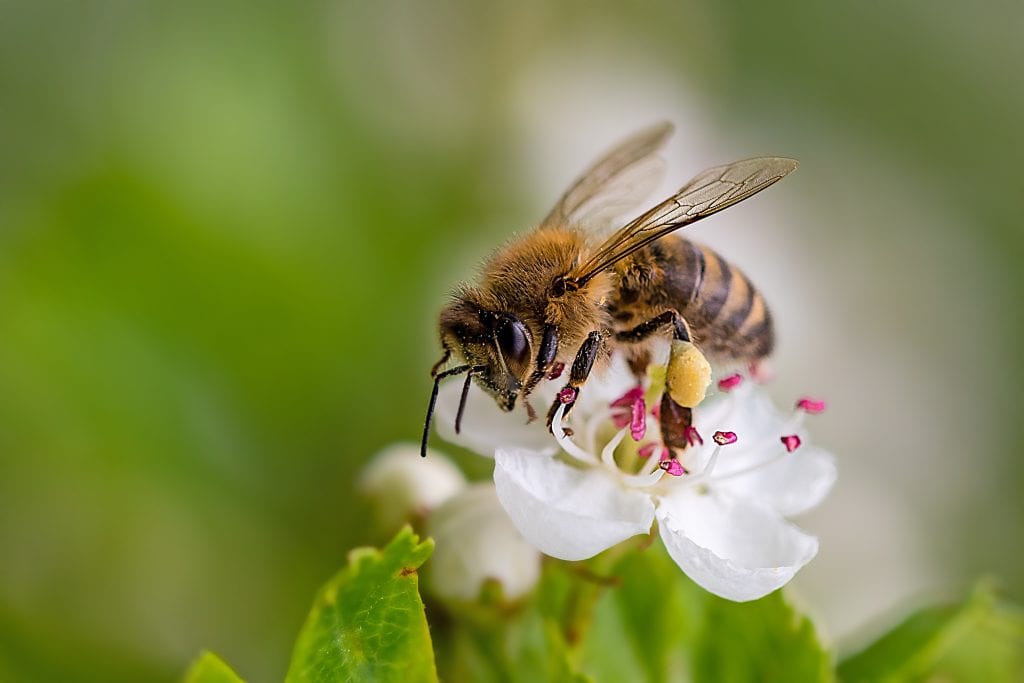
9/23/20 - Submitted by Janice Brown McPhillips
I am an avid gardener with both a perennial garden, a small vegetable garden at home as well as a plot at the Weir River Farm Community Garden. I turned my gardening hobby into a career many years ago and have been teaching at Holly Hill Farm and doing school garden education programs at many local schools. Students at Plymouth River School know me as the “Garden Teacher” from over 10 years of teaching students in the school’s garden. I have a small new garden at home that has been the source of a lot of fascination and joy this season and that is my native wildflower garden. I have always been amazed by the relationship between plants and the insects, butterflies, hummingbirds and other birds that call my garden home. Many of the beautiful plants in my perennial garden are not native to New England and while I’m not going to rip out all my beloved peonies, there is a new urgency in the gardening world about the importance of planting native plants that are adapted to live in our New England Climate. Native plants require less water than non-native varieties and provide nectar and habitat for birds, butterflies and other wildlife. Natives can also reduce erosion and soil run off. The dramatic decline of our insect population is a result of a combination of habitat loss and the use of lawn and garden pesticides. A few years ago, the phenomenon of honey bee colony collapse disorder was frequently in the news. That is still a huge problem that has the potential to adversely affect our food supply as honey bees are responsible for pollinating approximately 1/3 of our food crops. Not to diminish the importance of that problem, but there is an even bigger environmental catastrophe happening as many species of insects, caterpillars and the butterflies and moths they turn into are disappearing as a result of pesticide use and the fact that the plants that are their habitats are disappearing. Simply put – pollinators are in trouble. There is a very easy to read summary of how this dire situation came about written by an expert who explains it much better than I can: https://www.naturallandscapesnursery.com/nativeplants.html
The good news is that there is such an easy solution to this problem – plant a small garden filled with native plants that pollinators and birds love. A few weeks ago, I wrote an article for the Hingham Anchor about the drought we are currently experiencing where I mentioned that planting a native wildflower meadow might be a great alternative to planting grass. Even if you don’t intend to replace your entire lawn with a meadow, creating a small native wildflower garden on your property can bring much needed plant biodiversity to your landscape and provide habitat for many varieties of butterflies, moths, bees, and wasps. This will bring birds back to your yard as well. And that is what has been happening in my small garden this summer. I have a very small collection of native plants but already this summer, I have seen a number of monarch caterpillars and adult butterflies as well as a huge variety of bees and wasps including one with a very scary name, the 4-Toothed Mason Wasp. Despite that name, this 1 inch long wasp with iridescent blue wings is considered a beneficial insect because it eats destructive cutworm caterpillars. Another favorite is the small bright metallic green sweat bees who visit (and pollinate) my sunflowers.
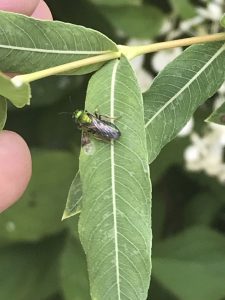
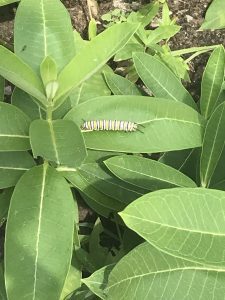
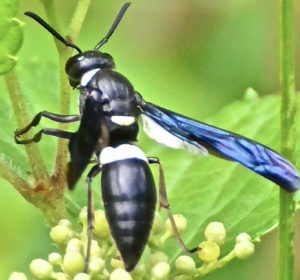
There is a lot to learn about in this world of native plants and fortunately, there are many ways to learn, many books to read, experts to learn from, and groups to join. For starters, tune into the Hingham Land Conservation Trust annual meeting that is being held tonight – Wednesday September 23rd at 7pm. After the business portion of the meeting, Sean Kent from Mass Audubon will give a short presentation about pollinators. Send an email to AnnualMeeting@HinghamLandTrust.org to receive the link to the Zoom meeting. Harbor Media is filming this event so if you are unable to attend, you can watch a recording later and the link will be provided here. If you would like to see what a native pollinator-friendly demonstration garden looks like, take a walk to Bare Cove Park and visit the newly renovated “triangle garden” that is a short walk from the parking lot off Fort Hill Street, near the South Shore Model Railroad Museum building. If you are intrigued, get a copy of the new book by Doug Tallamy, “Nature’s Last Hope.” And consider becoming a member of the South Shore chapter of Wild Ones, a national organization dedicated to educating and promoting environmentally sound landscaping practices to preserve biodiversity through the preservation, restoration, and establishment of native plant communities. Mass Wild Ones has collected a number of very helpful resources about native plants that are available here:
https://www.masswildones.org/resources.html. Our local Wild Ones chapter was started by Hingham resident Britt Drews and many of the plants in my small native pollinator garden came from their recent plant sale. Wild Ones members, along with others in our community, assisted the Hingham Land Conservation Trust with the triangle garden renovation this past spring (see related article on the Hingham Anchor’s Green Living page https://hinghamanchor.com/hingham-land-conservation-trust-annual-meeting-on-sept-23-will-be-virtual/ ). And finally, if you are on social media, consider following the Mass Wild Ones (South Shore Chapter), Native Plants of New England, or Native Plant Trust (known formerly as Garden in the Woods in Framingham). All of these Facebook pages provide valuable information and beautiful pictures to inspire us all.
Learning about native plants has been a fun journey for me. Please consider joining me and the many others in Hingham who are helping the environment by planting plants that pollinators depend on.
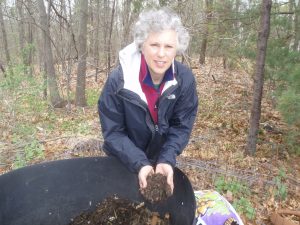
Janice McPhillips is a Hingham resident who works at Holly Hill Farm as a Farm and School Garden Educator and Outreach Coordinator. She also serves on the town of Hingham Cleaner Greener Hingham Committee.


Dear Janice,
Way to support local native plants and pollinators!
I read Dr. Tallamy’s book “Nature’s Best Hope” this summer and have made a huge effort to replace or add native pollinators to my gardens! Keep passing along the news about how essential natives are and how easy and beautiful they to add and work with!
Sandra